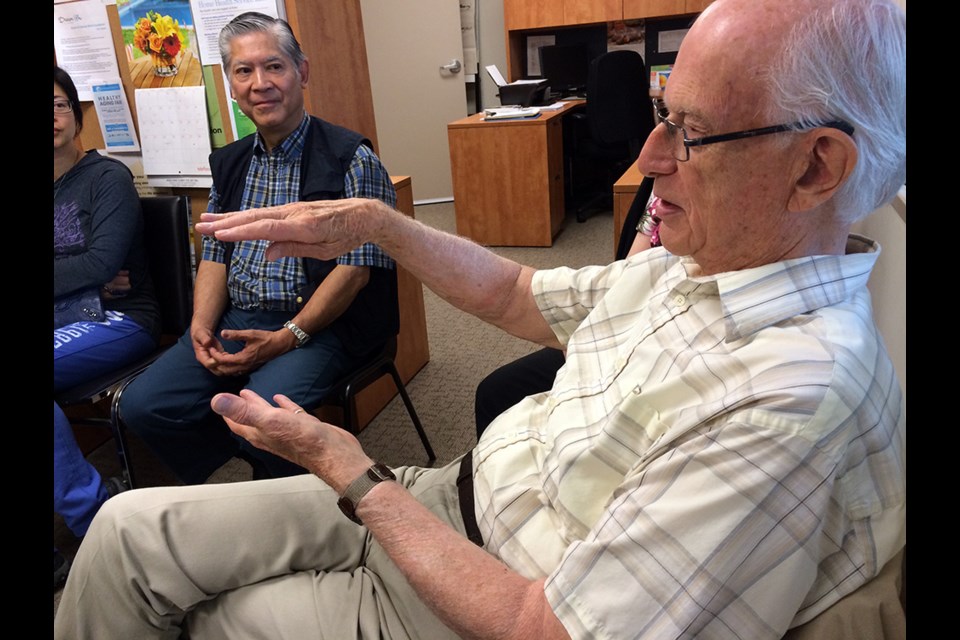Katherine Willett knows how hard it can be to care for a loved one.
Her elderly mother developed mixed dementia, and Willet became her primary caregiver for 17 years. The emotional toll was heavy.
There was worry - worry when her mom left a pot burning on the stove because she decided to cook some potatoes but took a nap instead. There was impatience - Willett grew short-tempered after her mom lost all motivation to dress herself, asking her daughter to do it. And there were tears - a lot of tears.
"(One day) I came home, and I just started crying and crying and crying," Willett says. "It wasn't because anything bad had happened, it was more the realization that my mother, the woman I knew as my mother, was in serious decline, and she was going to be dying sooner, rather than later."
One of the most heartbreaking moments for Willett was when she moved her mother into an assisted living facility, knowing that it was no longer safe for her to live at home.
"We gave away a lot of her furniture, and I remember ... they were loading the van with her furniture, and she started crying, and I felt really bad," Willett recalls.
That experience of caring for her mother for nearly two decades left a deep impression on Willett, and she signed up for the gerontology program at Simon Fraser University. She began working with the Burnaby Seniors Outreach Services Society in 2009. Since then, she has been coordinating educational workshops and the annual caregivers' information and speakers fair, which draws an estimated 200 to 300 people. Linda Comba, the society's program director, runs a support group for family caregivers. They meet every two weeks, and about 25 people participate.
The three-pronged program is well attended, but it may be coming to an end, now that the United Way is scaling back $1.65 million in funding for seniors' programs, due to a drop in donations. Comba learned in February that the United Way was not going to renew their grant.
"I was in shock. I really was. I was devastated. We had been led to understand our program was pretty well respected by our funder," she says, adding that the United Way is choosing to focus on the Better at Home program instead.
"It really isn't that much," Comba says. "It's such a dribble, and it does so much good for people."
Willett says caring for the caregivers is paramount with an aging population and the provincial government's push to keep seniors at home longer.
"The Ministry of Health has this philosophy of home is best. They're trying to keep people home longer and longer. That means more work for family caregivers," she says. "However, the longer seniors stay at home, ... the higher the incidence of developing complex care needs. That means family caregivers will be caring for them longer and also in more complex situations. It's kind of a double-edged sword."
The society is looking for funding elsewhere, but it's difficult when similar programs are competing for the same limited resources.
Burnaby Seniors Outreach Services Society has launched an online crowd-funding campaign, in partnership with Glacier Media, in hopes of keeping the caregivers' program alive. The society is hoping to raise enough money to cover the next year, which will buy time to find alternative funding.
To donate, go to www.fundaid.ca and type "SOS Burnaby caregivers" in the search window.
"The demand can only increase with the numbers of seniors who are going to be requiring more care," Comba says. "The stress levels are already high and will only increase with the changes in community services."



